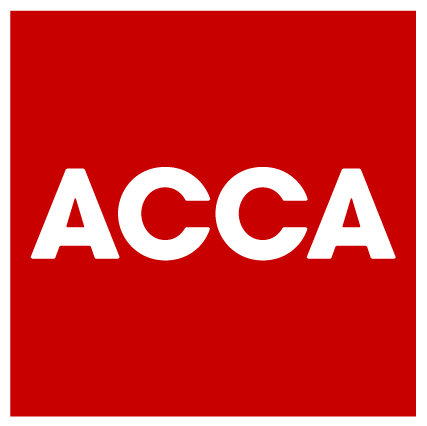Corporation Tax Services
Corporation Tax is a significant financial obligation for limited companies, yet many business owners find the calculation complex and the compliance burden overwhelming. At Gravesend Accounting, our expert Corporation Tax service transforms tax planning from a source of stress into a strategic business tool. With extensive experience supporting limited companies across Gravesend and Kent, we handle everything from detailed profit calculations to identifying tax-saving opportunities and filing accurate returns with HMRC. Our comprehensive approach combines thorough compliance with proactive tax planning, ensuring your company pays the correct amount of tax whilst maximising efficiency and protecting your business from costly penalties.
How we can help you
Expert Corporation Tax Services for Gravesend Limited Companies
Managing Corporation Tax represents a critical responsibility for any limited company, yet the process involves complex calculations, strict filing deadlines and ongoing compliance with HMRC regulations. At Gravesend Accounting, our Corporation Tax service provides limited companies with complete support throughout the entire process, from profit calculation through to strategic tax planning and accurate return filing.
Corporation Tax is not simply a compliance obligation to endure. With proper planning and expert guidance, it becomes an opportunity to optimise your business finances, retain more profit and support your company’s growth and development.
What is Corporation Tax and Why Does Your Company Need to Pay It?
Corporation Tax is a tax obligation specific to limited companies and certain other organisational structures. Unlike sole traders who pay Income Tax on business profits, limited companies are subject to Corporation Tax on their taxable profits. For any profitable limited company registered with Companies House, paying Corporation Tax is a statutory requirement enforced by HMRC.
Understanding your Corporation Tax obligation is essential for effective business financial planning. The amount your company owes depends on your profit level, the eligible expenses you can deduct and the current tax rates. This is why expert guidance is so valuable, as small variations in how profits and expenses are calculated can result in significant differences to your tax bill.
How Corporation Tax is Calculated
Corporation Tax calculation involves several stages, each requiring careful attention to detail and thorough knowledge of allowable expenses and tax regulations. Understanding this process helps you appreciate why professional support is invaluable.
The calculation typically follows these steps. First, we determine your company’s taxable profit by reviewing all business income and receipts. Second, we deduct all allowable business expenses, which encompasses a wide range of costs including staff salaries, premises costs, equipment purchases, professional fees and many other business expenditures. Third, we apply the appropriate Corporation Tax rate to your taxable profit. Fourth, we calculate your precise Corporation Tax liability. Finally, we ensure all payments are made on time to HMRC.
This process demands detailed record-keeping, thorough understanding of which expenses are allowable and awareness of tax reliefs and allowances your company may qualify for. Many businesses underestimate their tax liability simply because they miss legitimate expense deductions or fail to claim available reliefs.
Corporation Tax Planning and Saving Opportunities
Effective Corporation Tax management involves proactive planning, not simply reactive compliance. At Gravesend Accounting, we work with you to identify legitimate opportunities to minimise your Corporation Tax liability and improve your company’s financial position.
Tax planning strategies we regularly implement include maximising capital allowances on equipment and asset purchases, timing business expenditure strategically throughout the year, structuring director salary and dividend payments optimally and ensuring all allowable expenses are properly recorded and claimed. We also advise on business structure considerations, such as whether operating as a limited company remains optimal for your circumstances.
Through this proactive approach, many companies discover they can reduce their Corporation Tax bills significantly whilst remaining completely compliant with HMRC regulations. The savings often exceed our professional fees substantially.
Compliance and Filing Deadlines
Corporation Tax compliance involves strict deadlines and specific filing requirements with HMRC and Companies House. Limited companies typically have nine months following their financial year end to file their Corporation Tax return and pay any tax due. Missing these deadlines can result in penalties, increased interest charges and potential enforcement action from HMRC.
At Gravesend Accounting, we manage all compliance deadlines carefully, ensuring your returns are filed accurately and on time. We maintain detailed records of all filing requirements, track deadline dates and handle all HMRC communications on your behalf. This means you can focus on running your business with confidence that your tax compliance is being managed professionally.
Our Comprehensive Corporation Tax Service
Our Corporation Tax service encompasses everything required to manage your company’s tax obligations effectively and strategically. We take complete responsibility for the Corporation Tax process, handling all calculations, planning and compliance matters.
Our service includes detailed profit and loss analysis, identification and documentation of all allowable business expenses, calculation and claiming of capital allowances on business assets, strategic tax planning to minimise your overall tax liability, preparation of accurate Corporation Tax returns, submission of returns to HMRC, payment calculation and handling of all HMRC communications regarding your Corporation Tax.
We also provide ongoing advice throughout the financial year, helping you make business decisions with full awareness of their tax implications. This means you can plan significant business expenditure, director payments and dividend distributions with expert guidance on the optimal timing and approach for your tax position.
Capital Allowances and Asset Management
Capital allowances represent a significant tax planning opportunity that many businesses underutilise. Capital allowances allow you to deduct the cost of business assets from your taxable profit, reducing your Corporation Tax liability.
We review all capital expenditure your company makes on equipment, vehicles, computer systems, premises improvements and other business assets to ensure you receive the maximum benefit available. We also advise on the most tax-efficient timing for asset purchases and the optimal method of acquiring assets for your circumstances.
Director Payments and Dividend Strategy
How you extract profit from your limited company as a director involves important tax considerations. The balance between salary payments and dividend distributions significantly affects your overall tax position and that of your company.
We provide strategic guidance on the optimal combination of salary and dividends for your circumstances, considering your personal tax position, your company’s cash flow and the overall tax efficiency of different payment approaches. This strategy can result in substantial tax savings for both you and your company annually.
HMRC Communications and Dispute Resolution
Occasionally HMRC raises queries or challenges regarding Corporation Tax returns or specific deductions. Should this occur, Gravesend Accounting manages all communications with HMRC on your behalf, providing detailed explanations and supporting documentation for our positions. Our experience in handling HMRC matters means we navigate these situations professionally and aim to resolve them efficiently.
Getting Started with Gravesend Accounting
If you are currently managing your Corporation Tax with difficulty, seeking to improve your tax position or simply wanting professional support for your company’s tax compliance, we welcome the opportunity to discuss your specific circumstances. Our team has extensive experience supporting limited companies of various sizes and sectors across Gravesend and the wider Kent region.
We offer flexible consultation options, both face-to-face meetings at our Gravesend office and convenient online discussions to fit your schedule. During an initial discussion, we understand your business structure, review your current tax arrangements and outline how our service can support you.
Contact Gravesend Accounting today to arrange a confidential discussion about how our Corporation Tax expertise can support your company’s financial success and growth.
Frequently asked questions (FAQ)
How much Corporation Tax will my limited company need to pay?
The amount of Corporation Tax your limited company owes depends entirely on your profit level. The current standard Corporation Tax rate in the UK is 25% on profits above £250,000, though a lower rate applies to smaller profits. We calculate your specific liability based on your company's actual profit, considering all allowable expense deductions and relevant tax reliefs available to you. Every business is different, which is why we provide a detailed calculation following your financial year end. The best approach to reducing your Corporation Tax bill is proactive planning throughout the year with professional guidance on timing and structure of business expenditure and director payments.
What counts as an allowable business expense for Corporation Tax purposes?
The HMRC allows deduction of a wide range of business expenses from your taxable profit, reducing your Corporation Tax liability. Common allowable expenses include staff salaries and related employment costs, business premises rental or mortgage interest, utilities and office running costs, professional fees including accountancy and legal services, equipment and computer systems used for business purposes, vehicle running costs where used for business, marketing and advertising expenditure, subscriptions to professional bodies and industry memberships, insurance policies required for business operations and many other legitimate business costs. Not all business expenditure qualifies as allowable, which is why professional guidance is valuable. We review your business spending carefully to ensure you receive the maximum legitimate deduction available, preventing you from inadvertently overpaying Corporation Tax.
When must my limited company file its Corporation Tax return and pay the tax due?
Limited companies must file a Corporation Tax return with HMRC within nine months following their financial year end. This is a statutory deadline, and missing it results in penalties and additional interest charges. The amount of tax due must be paid by the filing deadline unless you have agreed alternative payment arrangements with HMRC. At Gravesend Accounting, we manage all deadlines carefully, ensuring your return is filed on time and your tax payment is made correctly. We track important dates in advance and remind you of upcoming obligations, preventing any missed deadlines or complications.
Can my company claim capital allowances to reduce Corporation Tax?
Yes, absolutely. Capital allowances are a valuable tax planning tool that many businesses underutilise. When your company purchases business assets such as equipment, vehicles, computer systems or premises improvements, you can claim capital allowances, effectively deducting the cost from your taxable profit. This reduces your Corporation Tax liability significantly. We review all capital expenditure your company makes to identify available allowances and ensure you receive the maximum benefit available. We also advise on the tax-efficient timing for asset purchases to optimise your Corporation Tax position.
Should I extract profit from my company as a salary or dividend payment for tax efficiency?
The decision between salary and dividend payments involves important tax considerations for both you and your company. The optimal approach depends on your personal tax circumstances, your company's cash flow and your overall financial objectives. We provide strategic guidance tailored to your specific situation, calculating the tax implications of different payment approaches and recommending the most efficient option. This personalised approach can result in substantial tax savings annually for both you personally and your company, which is why expert advice is so valuable.
Book A Consultation
At Gravesend Accounting, we much prefer to talk to you about your accounting needs.
30 Min Face-to-Face Meeting
Schedule a Phone Call
Who we serve
At Gravesend Accounting, we much prefer to talk to you about your accounting needs.
Sole Traders
Landlords
Dentists
Builders

